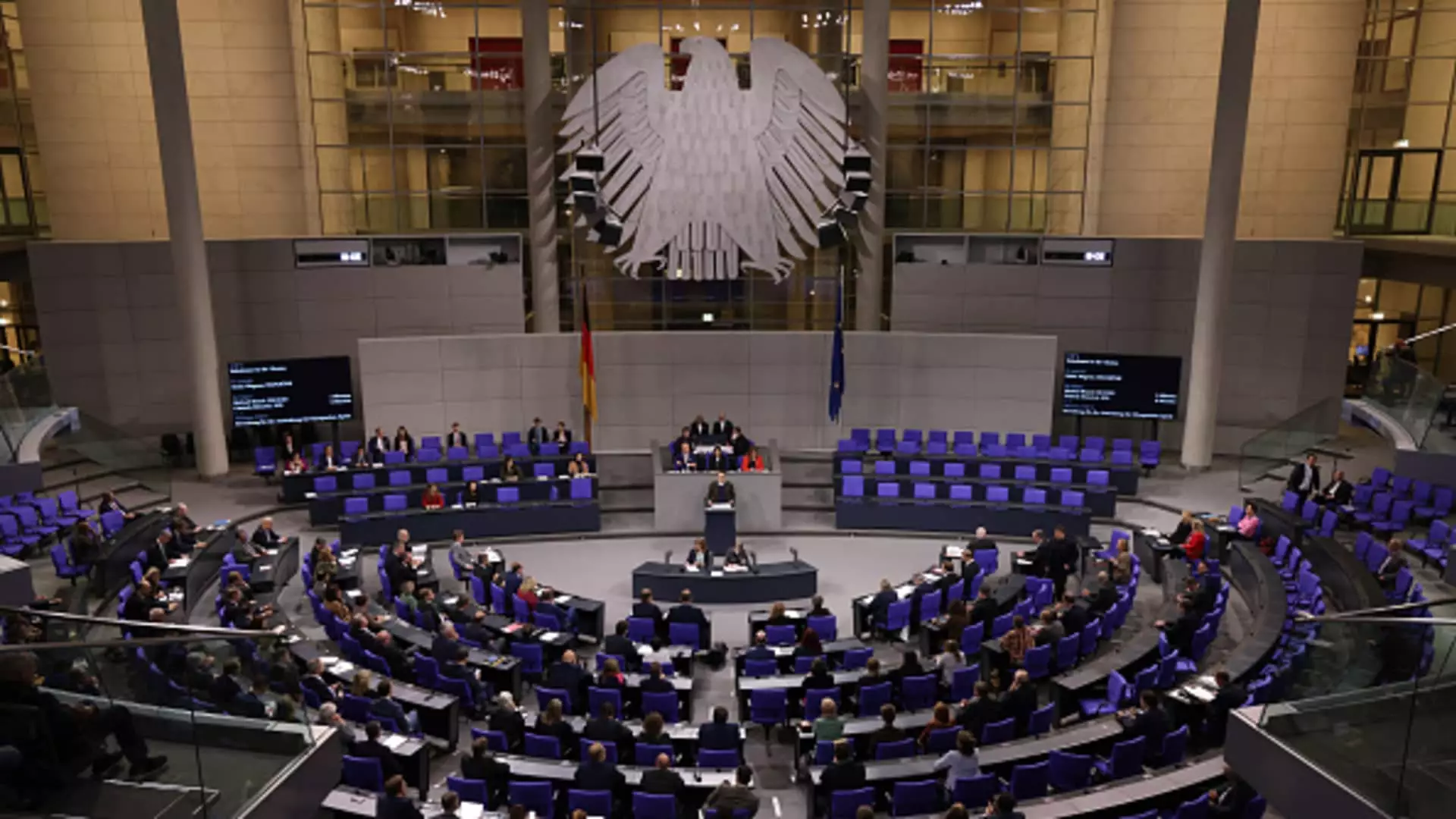The recent political landscape in Germany has been dramatically altered following President Frank-Walter Steinmeier’s decision to dissolve the lower house of parliament. This move stems from the shocking collapse of Chancellor Olaf Scholz’s three-party coalition, a partnership that had struggled to navigate the complexities of governance in challenging times. Steinmeier’s call for snap elections on February 23 underscores a critical juncture in German politics, emphasizing the need for a stable and effective government that can respond to the pressing issues facing the nation.
Steinmeier articulated the necessity for reliable majority governance in his address, pointing out that stability is paramount for Germany, particularly in times of uncertainty. The dissolution of parliament serves as a grim reminder of the fragility of coalition politics, where diverse parties must come together to form a unified front. As Steinmeier noted, a return to problem-solving as a central political focus is urgently required, indicating that recent governance has fallen short in addressing the needs of the populace.
Another significant aspect of Steinmeier’s speech was his warning about external interference in the electoral process. By drawing parallels to the recent Romanian elections, he highlighted the potential threats that covert influences pose to democratic integrity. The emphasis on fair and transparent elections is crucial, especially as the political sphere becomes increasingly intertwined with social media, where misinformation and manipulation can sway public opinion.
In a world where the flow of information is instantaneous and sometimes unregulated, the call for transparency is a clarion demand for electoral fairness. It raises profound questions about the responsibilities of social media platforms in safeguarding democratic processes. Steinmeier’s remarks serve as a reminder for both political leaders and voters to remain vigilant against the corrosive effects of external meddling.
As Germany gears up for the forthcoming elections, the political atmosphere has transformed into one of fierce competition. Chancellor Scholz, leading a caretaker government, faces mounting pressure, particularly following the loss of support from the Free Democrats after Finance Minister Christian Lindner’s departure. With surveys indicating that conservative challenger Friedrich Merz is poised to take the reins, the election campaign is heating up. He has vocally criticized the current government’s regulatory approach, claiming it has hindered economic growth.
Current polling reflects a shifting electorate, with conservatives enjoying a significant lead over Scholz’s Social Democrats (SPD). Simultaneously, the far-right Alternative for Germany (AfD) has gained traction, complicating the already intricate dynamics of coalition-building. The unwillingness of mainstream parties to align with the AfD further underscores the challenges that lie ahead for any new government seeking stability and legislative effectiveness.
As Germany stands on the brink of transformative elections, the outcomes will undoubtedly redefine its political landscape. The pressing questions are not just about who will lead but also how future coalitions will be structured in a newly polarized environment. With the potential for the far-right’s influence looming, the nation must tread carefully to uphold democratic values while navigating the complexities of governance. As the elections approach, the refrain for stability, integrity, and effective governance will resonate strongly within the electorate, seeking assurance during an uncertain time.


Leave a Reply